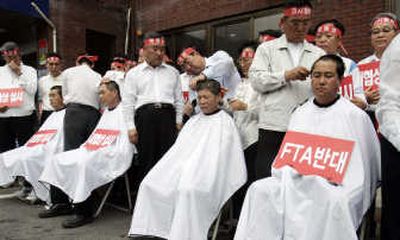South Korea reneges on importing U.S. beef

SEOUL, South Korea – With his approval ratings poisoned by mass anxiety about American beef, South Korean President Lee Myung-bak backed away on Tuesday from a wildly unpopular agreement to resume imports of beef from the United States. Lee had personally approved the deal less than two months ago.
Lee’s change of heart follows weeks of demonstrations by tens of thousands of South Koreans, many of them mothers with children in hand, who are alarmed and angered that his government would expose their families to the purported risks of mad cow disease.
“We have lost the public’s confidence over this matter,” Lee told his Cabinet on Tuesday, according to a spokesman.
Plunging poll numbers apparently also played a role in Lee’s decision to reverse course. Just 100 days in office, his approval ratings have sunk below 20 percent, a historic low so early in a South Korean president’s term.
His government on Tuesday asked the United States to refrain from shipping beef from animals that were more than 30 months old at time of slaughter, which many people here believe raises the risk of mad cow infection to an unacceptable level.
Until the United States government complies, it appears that all beef imports will remain on hold.
“It is natural not to bring in meat from cattle 30 months of age and older as long as the people do not want it,” said Lee, although he had agreed on April 18 to import U.S. beef regardless of age.
Reaction on Tuesday from the United States was swift and negative.
“I can’t deny that we’re disappointed by this,” said U.S. Ambassador Alexander Vershbow. “We think that the agreement that our two governments reached in April is a good agreement, that it’s based on international science, and there’s no scientific justification to postpone implementation.”
Vershbow added that the United States did not “see any need for renegotiation of the agreement” because it provides “very effective safeguards to ensure the health of Korean consumers.”